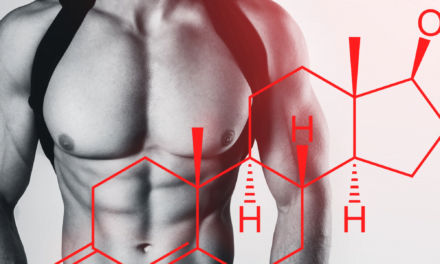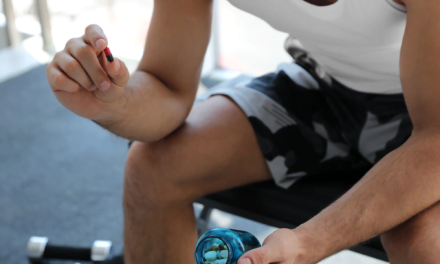They are synthetic versions of testosterone that are used to increase muscle mass, strength, and endurance. Although anabolic steroids have been known to have physical side effects, their psychological effects are often overlooked. This article will discuss the psychological effects of anabolic steroid use and the psychological treatments available for individuals struggling with steroid abuse.
Psychological Effects of Anabolic Steroid Use
Mood Swings
Anabolic steroid use can cause mood swings ranging from irritability to aggressiveness and anxiety. Users may become easily angered or agitated, leading to conflict with others. In some cases, users may also experience paranoia and anxiety, which can be debilitating.
Depression
Anabolic steroid use has also been linked to depression. Symptoms of depression include feelings of hopelessness, sadness, and loss of interest in activities once enjoyed. Risk factors for depression in steroid users include low self-esteem, social isolation, and a history of depression.
Body Image Issues
 Body image issues are also common among anabolic steroid users. Dysmorphia, or muscle dysmorphia, is a condition where individuals obsess over their perceived physical flaws. For example, they may view themselves as too small or weak, even in good physical shape. Muscle dysmorphia is particularly common among men who use anabolic steroids.
Body image issues are also common among anabolic steroid users. Dysmorphia, or muscle dysmorphia, is a condition where individuals obsess over their perceived physical flaws. For example, they may view themselves as too small or weak, even in good physical shape. Muscle dysmorphia is particularly common among men who use anabolic steroids.
Addiction
Anabolic steroid use can also lead to addiction. Addiction is a chronic disease characterized by compulsive drug seeking and use despite harmful consequences. In addition, anabolic steroid users may develop a psychological dependence on the drug, which can lead to continued use despite the negative consequences.
Psychological Treatment for Anabolic Steroid Abuse
Cognitive Behavioral Therapy
Cognitive behavioral therapy (CBT) is a type of psychotherapy used to treat various psychological disorders. CBT focuses on changing negative thought patterns and behaviors to improve mental health. For example, CBT effectively treats addiction and can help treat steroid abuse.
Motivational Interviewing
Motivational interviewing is a type of counselling to help individuals change their behavior. Motivational interviewing aims to help individuals identify their goals and motivations for change and develop a plan to achieve those goals. For example, motivational interviewing can help treat steroid abuse by helping users to identify the negative consequences of their drug use and to develop a change plan.
Support Groups
Support groups can also help treat steroid abuse. Support groups provide a safe and supportive environment for individuals to share their experiences and to receive emotional support.
Psychological Effects of Steroid Use In the UK
The use of anabolic steroids can have significant psychological effects, which can range from mild mood changes to more severe psychiatric disorders. Here are some of the psychological effects of steroid use that have been reported in the UK and elsewhere:
Mood swings and irritability: Steroid use can cause rapid and significant changes in mood, leading to feelings of irritability, aggression, and hostility. These changes in mood are often referred to as “roid rage.”
Depression: Steroid use has been associated with an increased risk of depression, which can manifest as persistent sadness, hopelessness, and a loss of interest in activities that were once pleasurable.
Anxiety: Steroid use can also lead to anxiety, which can cause feelings of nervousness, restlessness, and a sense of impending doom.
Psychosis: In some cases, steroid use can trigger psychotic episodes, which can include hallucinations, delusions, and disordered thinking.
Addiction: Steroid use can also lead to addiction, with users experiencing strong cravings for the drug and engaging in compulsive use despite the negative consequences.
It is important to note that not everyone who uses steroids will experience these psychological effects, and the severity and duration of the effects can vary depending on a range of factors, including the dose and duration of use, individual susceptibility, and underlying mental health conditions. However, the potential psychological effects of steroid use should be taken seriously, and anyone who is concerned about their own or someone else’s steroid use should seek help from a healthcare professional.
Conclusion
Anabolic steroid use has many psychological effects, including mood swings, depression, body image issues, and addiction. Fortunately, there are psychological treatments available for individuals struggling with steroid abuse. Cognitive behavioral therapy, motivational interviewing, and support groups can all help treat steroid abuse. Therefore, it is essential to seek help for psychological issues related to steroid abuse and to increase awareness and education on the psychological effects of steroid use.
FAQs
Q: What are anabolic steroids?
A: Anabolic steroids are synthetic testosterone versions that increase muscle mass, strength, and endurance. Athletes and bodybuilders often use them to enhance performance.
Q: What are the psychological effects of anabolic steroid use?
A: Anabolic steroid use can cause mood swings, depression, body image issues, and addiction. Users may experience irritability, aggressiveness, anxiety, and paranoia. They may also develop muscle dysmorphia, a condition where individuals obsess over their perceived physical flaws.
Q: What is cognitive behavioral therapy?
A: Cognitive behavioral therapy (CBT) is a type of psychotherapy that focuses on changing negative thought patterns and behaviors to improve mental health. It is effective in treating addiction and can help treat steroid abuse.
Q: What is motivational interviewing?
A: Motivational interviewing is a type of counselling to help individuals change their behavior. The goal is to help individuals identify their goals and motivations for change and develop a plan to achieve those goals. For example, it can help treat steroid abuse by helping users to identify the negative consequences of their drug use and to develop a change plan.
Q: What are support groups?
A: Support groups are a safe and supportive environment where individuals can share their experiences and receive emotional support. They can help treat steroid abuse, and examples of support groups include Anabolic Steroid Abuse Support, MuscleTalk.co.uk, and Steroid.com.
Q: Why is it important to seek help for psychological issues related to steroid abuse?
A: It is essential to seek help for psychological issues related to steroid abuse because they can be debilitating and have long-term mental health effects. In addition, seeking treatment can improve overall mental health and prevent further negative consequences of steroid abuse.
Author

Dr. Aditya K. Sharma
I am Dr. Aditya Sharma, a dedicated urologist specializing in kidney transplants and advanced urological surgeries. My career is driven by a passion for delivering exceptional care and pioneering surgical techniques. Outside the operating room, I have a keen interest in studying the effects of anabolic steroids on bodybuilding, seeking to understand the fine line between enhancing performance and maintaining health.







